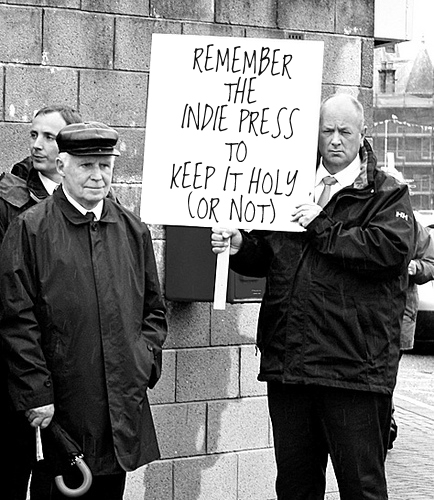Validating the three publishing options: Traditional, Small/Independent, DIY


Honestly, when in the company of commercial press authors, defending my place as independent press author can be difficult. To those who have “made it” into the commercial presses, I would assume my defense comes across not nearly as articulately and convincingly as I would hope. Afterall, the examples of small press authors immigrating into the world of commercial presses far outweighs the number of commercial authors willing to emigrate to the small press world. The commercial press gatekeeper is much more discriminating than the indies; I understanding the disbelief. I too would go commercial if given the right opportunity.
But things are getting easier. Not only are small press books showing face on historically commercial press-dominated shortlists (the recently announced 2010 National Book Critics Circle award finalists includes quite a few small press titles), but with the help of Jane Friedman the various publishing paths have been defined, and by extension, validated.
In the summary of her Writers Digest Conference 2011 talk on publishing options Friedman very clearly explains what she sees as the basic three options for publishing:
- Tradition
- Independent or niche presses
- Self-publishing/DIY publisher
But more, she outlines the viability of each path and goes even further to categorize according to which path that might suit them best. Her bullet-points follow:
Pros, Cons, and Requirements:
Traditional publishing:
- It’s a commercially-driven business
- Competitive – many people are trying to break in
- National distribution – your work needs to merit that
- Slower to market (usually)
- Not the time to experiment
- Persistence & patience
- For non-fiction: you need a platform
Small/independent press:
- Weaker distribution, smaller print run
- More personal attention, dedication
- Usually less money
- Niche marketing – smaller, specialized market; they’re experts in the field
- More accepting of “art” (could be nonprofit), more service-minded
DIY:
- Entrepreneurial spirit
- Direct connections with readership (for sales)
- Must be comfortable with technology
- Must enjoy connecting with people (online and off)
- Requires energy to market and promote
ALL of the options actually require energy to market and promote.
It all boils down to you – your strengths, your work, your readers – to determine what’s best.
Hell, just read the original post.
Original photo credit: http://www.flickr.com/photos/donaldmacleod/
